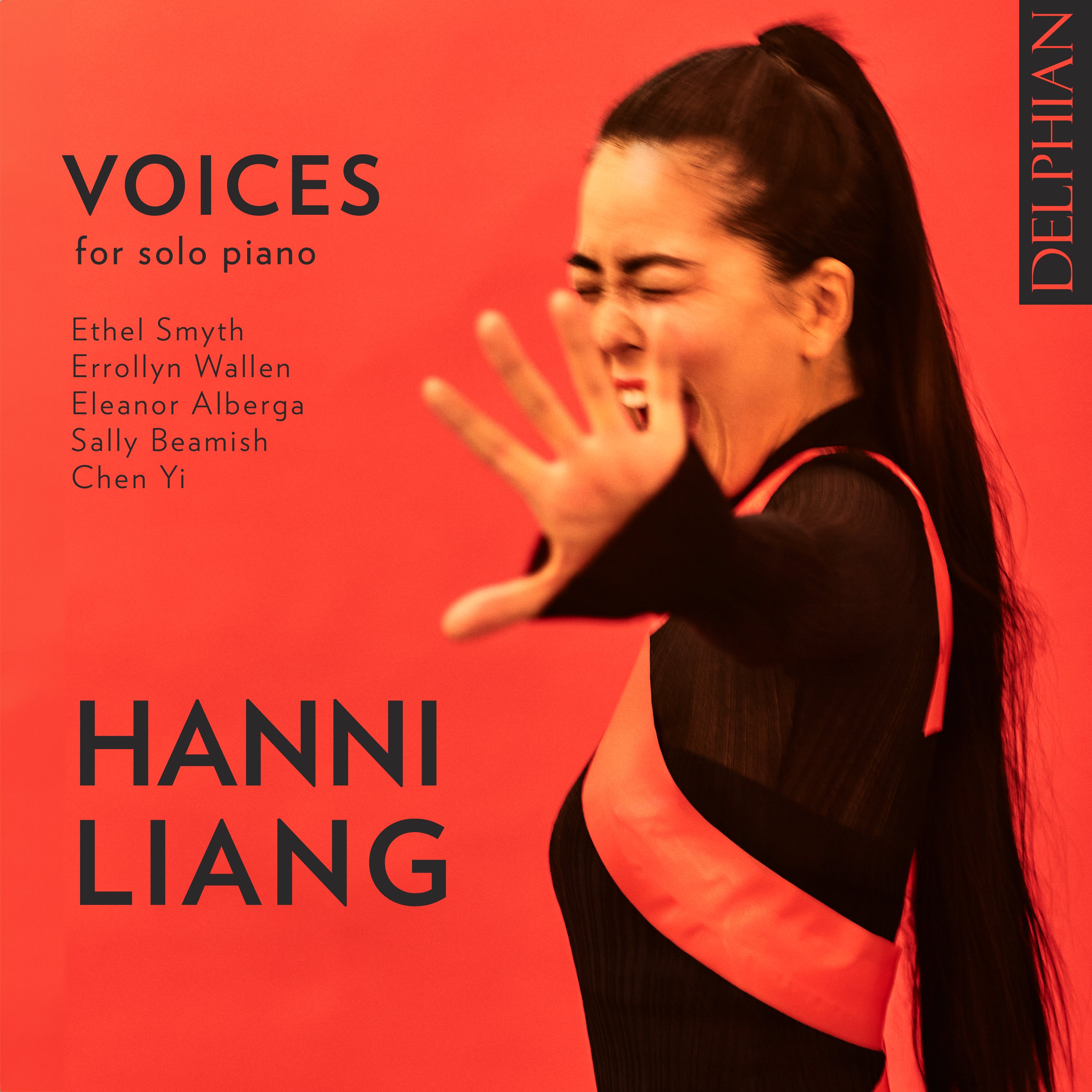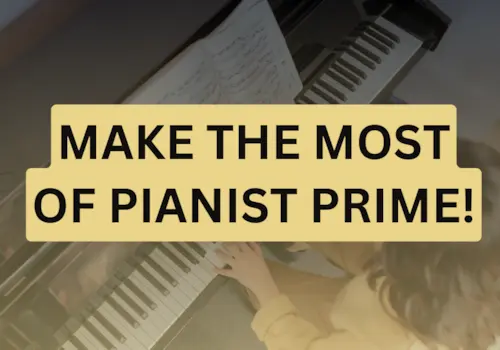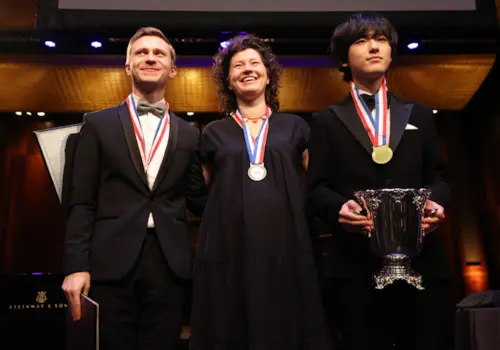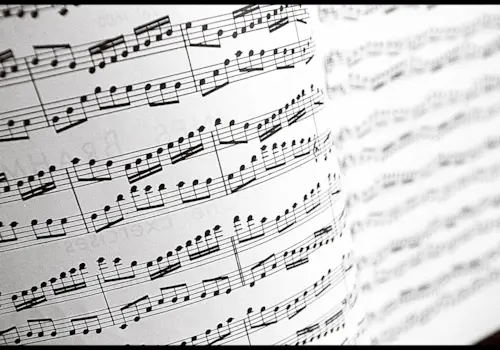The German pianist Hanni Liang on recording the works by Ethel Smyth, Errollyn Wallen, Eleanor Alberga, Sally Beamish and Chen Yi
Tell us about the origins of the album?
The album began when I first came across Ethel Smyth in a book by the German author Volker Hagedorn. I was immediately fascinated and inspired by her personality – her strength and courage to fight for women’s rights, and her ability to connect music with social values. When I discovered that there was only one recording of her music, from 1990, I felt an inner need to bring her music to life again and highlight her lifelong fight for equality, democracy, and tolerance. These values are as important today as they were in her time.
I started by creating a bridge from Ethel Smyth to the present and came across fantastic contemporary female composers like Sally Beamish, Errollyn Wallen, Eleanor Alberga, and Chen Yi, each telling their own stories. Chen Yi, in particular, helped me connect with my own roots and reflect on who I am and where I come from. Ultimately, the album is linked by one central question: What do you want to raise your voice for?

What made you decide on the title Voices?
Given the journey of creating the album’s program, it was obvious that the title had to be Voices. It symbolises the power we each have through our voices – the power to shape the world we live in and to stand up for those who cannot speak for themselves. On a personal level, it also represents the unique identity that each voice carries, making us who we are.
Why is that important to you?
In my work as a pianist and concert creator, I always seek the ‘why’ in my projects and performances. Why am I playing this program? What is the inner motivation, and what message do I want to convey? This reflection is essential not just in shaping individual projects but also in understanding the role of an artist in today’s world, particularly as we face the many challenges of our time.
I believe music, and art in general, has the power to contribute to society and shape the world. This belief guides me even when I’m recording music or creating an album. It’s not just about playing notes; it’s about having something to say.
It’s interesting that Ethel Smyth’s music is late Romantic in style, while the rest of the composers are contemporary and living. How does Smyth tie in?
Ethel Smyth is the starting point of the program and serves as the connection between the other composers. Each composer raises her voice in her own way, forming the common thread throughout the album. Initially, my goal was to promote Smyth’s music, but I soon realised that while she’s an inspiration from the past, it’s the voices of today that truly matter. That’s why I sought out contemporary female composers whose works have yet to be widely recorded.
Smyth was a member of the women's suffrage movement. Was this important to you?
Yes, it was very important. As I mentioned earlier, I believe music – especially classical music – needs to be contextualised in today’s world. Although the suffrage movement happened in the past and the music is from another era, the values Smyth stood for and the battles she fought remain relevant today. We still need movements that fight for a more diverse, equal, and democratic world.
There are three works on the album receiving premiere recordings: Sally Beamish’s Night Dances, Eleanor Alberga’s Cwicseolfor and Chen Yi’s Variations on Awariguli. Can you tell us about them?
I was fascinated by Alberga’s piece Cwicseolfor, which means ‘quicksilver’ in an ancient form of spelling. In many cultures, quicksilver has been seen as having transformative powers, and you can feel that energy in the music – it really gives a sense of power and the ability to bring about change.
While Cwicseolfor is more extroverted, Beamish’s Night Dances is introspective, tracing a journey from calmness to a wild breakout with hesitant and animated movements. Eventually, it finds inner peace, as the ending feels like a homecoming or a peaceful way of falling asleep.
Chen Yi is the only non-British composer on this album, but I included her music because I fell in love with how she integrates traditional Chinese harmonies into her compositions. This resonates with me, given my own Chinese roots. When I play her music, I can visualise landscapes and feel as if I’m truly there, hearing the Uyghurian folksong that serves as the main theme. It’s a way for me to reflect on the country I also call home.
All the featured composers are women. This was obviously important?
Yes, it was. We still need to amplify female voices, even though it’s high time we moved beyond the notion that women composing is something unusual. The program is not just about female composers – it’s a call to all of us to raise our voices and make a difference, even in small ways.
Watch Hanni Liang play an excerpt from Eight Memories in Watercolour by Tan Dun
Can you tell us about your background and training?
I come from a non-musical family and began playing piano at the age of eight, actually by coincidence. A friend in primary school wanted to play piano, and somehow, I ended up being the one playing. After a traditional piano education, studying in Hanover and Rostock, I played my dream concert: Liszt’s First Piano Concerto with the Deutsche Kammerphilharmonie Bremen in the grand hall of the Elbphilharmonie. It was truly a dream come true.
But... when you reach the top of the mountain, the next challenge is the long way down, and that’s what happened to me. I started asking myself, ‘Why? Why am I doing this? Why am I a musician?’ These questions led to many conversations with colleagues, friends, and mentors. I started my own initiative with young musicians, exploring the future of classical concerts. I even studied media management alongside my musical studies. After all these detours, I arrived at concert creation, where I now work as a pianist, exploring new ways of experiencing and listening to classical music while addressing contemporary issues. I also teach in this field at the conservatory in Munich. As my mother would say, ‘The road is never straight.’
What are your future goals and dreams?
My future goals and dreams are less about my profession and more about my personal life. I want to help create a world where my children, their children, and future generations can live in happiness, health, and peace. My ultimate dream is to contribute to that vision in everything I do.
Hanni Liang’s album Voices for Solo Piano – which features solo piano works by Smyth, Wallen, Alberga, Beamish and Yi –
is out now on Delphian (DCD 34326)
Further reading and watching:
READ other interviews with top pianists
& WATCH piano masterclasses by our experts!







